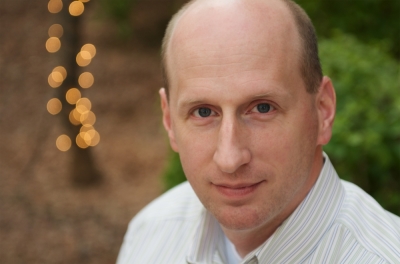The Beginning and End of Political Correctness: Laura Kipnis's Incredible Ordeal
This column was originally published at National Review.

Laura Kipnis is a feminist professor at Northwestern University — and not just any feminist. She's long been one of the few professors in American public life who are capable of making news with their scholarship, find their books reviewed by the most elite newspapers, and help start elite "conversations" about academe's favorite topics: sex, power, and identity. She's liberal, certainly (well known for her sympathetic views of pornography), but she's a free thinker. And that is intolerable.
Earlier this year she wrote an essay entitled "Sexual Paranoia Strikes Academe" for the Chronicle of Higher Education. In the piece, she decried bans on students' dating professors, declaring, "If this is feminism, it's feminism hijacked by melodrama." Students were being taught to "regard themselves as exquisitely sensitive creatures." Their "sense of vulnerability" was "skyrocketing" as a result of the "melodramatic imagination's obsession with helpless victims and powerful predators." She warned that "the climate of sanctimony has grown too thick to penetrate," with any dissenter labeled "antifeminist, or worse, a sex criminal."
Predictably, her words prompted a campus backlash, with mattress-carrying protesters demanding that the university immediately and officially condemn Kipnis's essay. They used adjectives such as "terrifying" to describe the traumatic effect of her words. Kipnis shrugged off the protests — after all, when you're a feminist professor writing on pornography, you're used to a bit of negative public attention. But she couldn't shrug off what happened next. Two students filed Title IX complaints against her, claiming that she'd violated federal law with her essay and a subsequent tweet. In essence, they were claiming that her writings on matters of public concern constituted unlawful gender discrimination.
What happened then should be familiar to anyone who has ever been embroiled in the Star Chamber that is academic "justice." Rather than laughing the claims out of the university — which would have been the appropriate response — the university retained an outside law firm and launched an investigation. The university not only denied Kipnis legal assistance during the formal proceedings, but its investigators also initially refused to even describe the nature of the charges against her, insisting on interviewing her before she knew precisely what she'd been accused of doing. According to Kipnis, she'd "plummeted into an underground world of secret tribunals and capricious, medieval rules, and I wasn't supposed to tell anyone about it."
It turned out there were two complainants, one who filed "on behalf of the university community," claiming that Kipnis's essay would have a "chilling effect" on students' reports of sexual misconduct. The other student claimed that mentioning her involvement in a lawsuit (not by name) was "retaliatory and created a hostile environment." In comments to the Huffington Post, the students said that their complaint was about alleged "factual inaccuracies" in Kipnis's essay. Somehow, to these students, Kipnis had violated federal law because she had "refused to correct" her original essay in a manner that pleased them. As one student said, "What reasonable person would want to report their assault if it meant a professor of their own university would take to the Chronicle of Higher Education to publicly misrepresent some of the most traumatizing events in your life?"
Let's translate the statement into plain English: According to the complainants, a student has a right — under federal law — to accuse another individual of illegal conduct (sexual assault or sexual harassment) and then dictate exactly how that accusation is reported to the public. This contention is constitutionally, morally, and academically absurd. Yet the university moved ahead with its punishing, intimidating process.
On Friday, Northwestern finally cleared Kipnis of most of the charges (though it continues to investigate whether she violated a "nonretaliation" provision of the faculty handbook). And while Kipnis — a uniquely combative figure — is unbowed by the pressure, the mere existence of this investigation will itself no doubt have a dramatic effect on already-intimidated professors. Who wants to risk a Title IX investigation merely for dissenting from the party line?
Yet despite the on-campus intimidation, there's good reason to believe that this most recent wave of political correctness is cresting. While no one should count on America's trembling, largely cowardly professoriate to risk much for liberty, outside pressure is starting to make a difference. Feminists from Jezebel to The Nation have expressed concern about Kipnis's treatment, and Jonathan Chait has discussed her ordeal as part of his recent campaign against PC. Indeed, there is a growing wave of leftist dissent against campus intolerance.
Conservatives have long argued to leftists who were indifferent to the plight of campus conservatives and Christians that PC would prove hard to contain, that the PC police would one day turn on their own. Well, now it's happening, and many on the left are suddenly realizing once again that free speech has some value, especially when their speech is under attack. The bottom line is that the current wave of intolerance is too self-righteous, too joyless, and too malicious to survive in an otherwise open society. But as the wave breaks, it's exacting a dreadful cultural and professional toll — stifling debate, ending careers, and eroding the intellectual foundations of liberty.
Political correctness will fail, but it will fail in the way that leftist revolutions always do — at great cost, with high casualties, and with the revolutionaries themselves largely unrepentant and unbowed, ready to try again the instant the culture forgets their last failure.





















